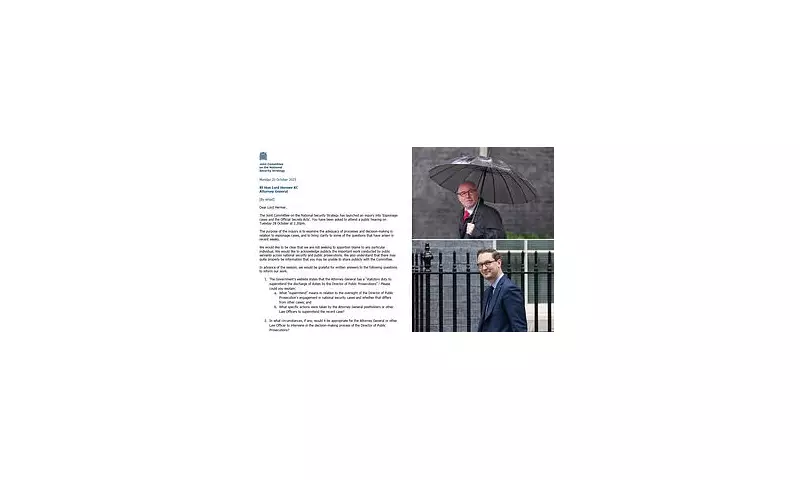
In a dramatic development that has sent shockwaves through Westminster, the Attorney General has formally demanded that Number 10 provide crucial evidence regarding alleged Chinese espionage activities targeting British parliamentarians.
Lord Harbinger, the government's chief legal adviser, has taken the extraordinary step of compelling Downing Street to disclose intelligence suggesting that China may have been conducting surveillance operations against sitting MPs and members of the House of Lords. This intervention represents one of the most significant national security confrontations within government in recent years.
Constitutional Crisis Looms
The Attorney General's unprecedented move comes amid growing concerns about foreign interference in British democratic institutions. Sources close to the investigation reveal that the requested evidence could contain detailed information about:
- Specific parliamentarians believed to have been targeted
- The methods employed in the alleged surveillance operations
- The timeframe during which these activities occurred
- Potential security breaches within parliamentary communications
Whitehall insiders describe the situation as "deeply troubling," with one senior official noting that "the very foundations of our democratic processes must be protected from foreign interference."
National Security Implications
The case has raised fundamental questions about the security of parliamentary operations and the vulnerability of elected officials to sophisticated foreign intelligence gathering. Security services are understood to have been monitoring the situation for several months, though the full extent of the alleged espionage remains unclear.
This development follows increasing tensions between the UK and China over various geopolitical issues, including trade, human rights, and technological competition. The government has been walking a delicate diplomatic tightrope, attempting to maintain economic relations while addressing security concerns.
Political Fallout
Opposition parties have seized upon the revelation, demanding immediate transparency and calling for a comprehensive review of parliamentary security protocols. The Speaker of the House of Commons is expected to make a statement regarding additional security measures for MPs in the coming days.
Meanwhile, cross-party committees are preparing to scrutinise the government's handling of the matter, with some parliamentarians expressing concern that warnings about foreign interference may have been overlooked or downplayed in the past.
The Attorney General's intervention marks a critical juncture in the ongoing investigation and could potentially lead to significant changes in how Parliament protects itself against foreign intelligence operations.





